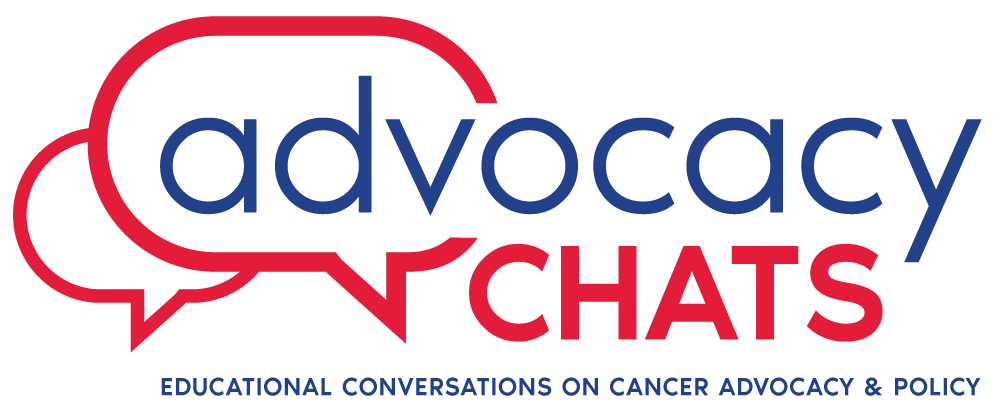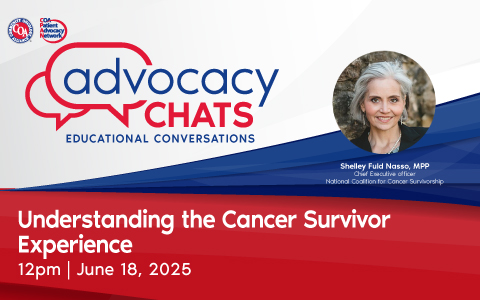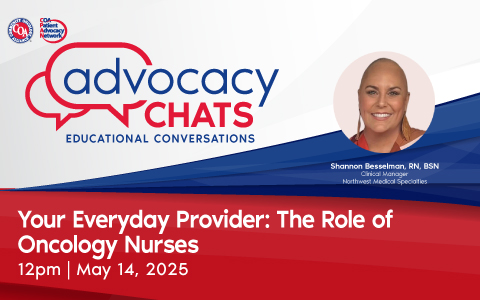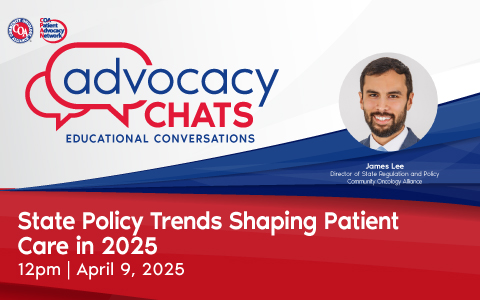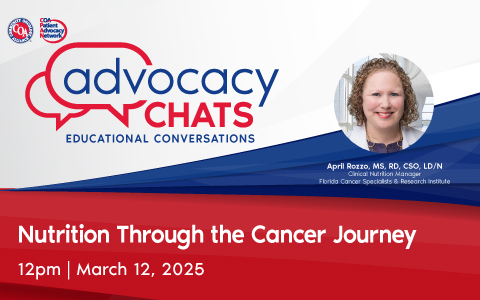Clinical Trials in the Community Oncology Setting
Clinical trials are important for discovering new cancer treatments, as well as new ways to detect, diagnose, and reduce the risk of developing cancer. Clinical trials can show researchers what does and does not work in ways that cannot be learned in the laboratory on non-humans.
May is National Clinical Trials Month. It is fitting that this month’s CPAN Advocacy Chat guest speaker was Dr. Dinesh Kapur, a practicing medical oncologist and the clinical research director of Eastern Connecticut Hematology Oncology (ECHO). He is recognized nationally among oncologists participating in clinical trials and serves as the chair of OneCouncil, the all-physician advisory board for clinical and strategic initiatives for the OneOncology network. Dr. Kapur’s presentation covered the importance of clinical trials, the conversations that occur between patients with cancer and their oncologists as they explore the option of participating in a clinical trial, and the misconceptions about clinical trials.
In national advocacy news, Rose Gerber, COA director of patient advocacy and education, also announced that as COVID continues to decline, the CPAN Advocacy Chapters, including the ECHO CPAN Chapter, are resuming in-person educational events and community outreach as they “Advocate for the Care.”
ECHO’s History
ECHO started in 1985 when Dr. Dennis Slater was recruited from Memorial Sloan Kettering Cancer Center by the William W. Backus Hospital in Norwich, Connecticut, to create its medical oncology practice. He began the private practice with the objective of developing a program that would allow patients to receive state-of-the-art cancer treatment within the comfort and convenience of their own community. Dr. Kapur completed his oncology fellowship and worked in academia and clinical trials before joining ECHO. One of the first things he realized upon moving to private practice is that the more he put into treating patients, the better the results he was able to achieve, and clinical trials were key to those results.
Over time, ECHO grew in size and scope becoming the predominant private practice in the area. The practice continued to bring in talented physicians who came from the leading health care institutions from across the county. ECHO has grown to seven oncologists and 65 support staff. The focus on providing exceptional cancer care in a location close to home has remained consistent.
The ECHO research department has grown to seven full-time researchers. The practice currently offers over 30 clinical trials. Historically, the practice offered Phase II and Phase III trials to its patients and has now added Phase IB trials. ECHO has become one of the highest volume clinical trial recruiters among similar practices participating in clinical trials.
Dr. Kapur and the other oncologists at ECHO each have an interest in clinical trials but have differing areas of expertise. They have developed and refined their skills to continuously improve the care they provide their patients. The ability to offer clinical trials to their patients with cancer does several things:
• Brings cutting edge care to patients
• Allows patients to receive the highest level of care close to home
• Engages the staff in its ability to provide an ever-increasing level of care
Conversations and Questions About Clinical Trials
Dr. Kapur discussed some of the most recurring questions patients with cancer have about clinical trials.
Physicians Support Patient Enrollment in Clinical Trials
Getting physicians to promote enrollment in clinical trials is usually not an issue. Practices encourage physicians to support clinical trial enrollment by enlisting the support of the research staff to do the matching, coordinating, and qualifying of potential participants. As an example, support in Dr. Kapur’s practice begins with screening every new patient for eligibility in an appropriate clinical trial.
Can I Quit a Clinical Trial?
A patient may leave a clinical trial at any time; continuation is never required. The patient does not lose control over their own care when they participate in a clinical trial.
What If I Get a Placebo?
Trials in which patients receive a placebo have largely disappeared. In today’s trials patients receive either the drug that is the current standard of care or a trial drug equivalent to the current standard but is being investigated to determine if it provides better outcomes and/or presents fewer side effects.
What About the Costs of Being in a Clinical Trial?
Patients in a clinical trial pay for the services and treatments they would have otherwise paid for if they were not in a trial. Costs above the usual, such as the drug itself, additional scans, and additional lab testing, are paid for by the drug company conducting the trial. For example, patients who participated in the drug trial when Herceptin was being investigated for the treatment of breast cancer did not pay for the drugs they received during the trial. CPAN’s Rose Gerber participated in this trial. If she and the other participants had had to pay for the drug, the cost of that drug would have been $52,000 per year.
Phases of Clinical Trials
Each phase of the drug development process is considered separate, and at each phase of a clinical trial, results are reviewed before the trial can progress to the next phase. There are four phases that lead to a new drug getting approved by the Food and Drug Administration (FDA). Each phase focuses on a different aspect of the drug, patient outcome, and any side effects that may occur.
- Phase 1
o Determines what dose will combat the disease but will also generate the least side effects
o This phase involves the smallest number of participants
o Phase 1B evaluates if the medication is effective
- Phase 2
o Tests the efficacy of a drug and the effect on the condition being treated
o For this larger group, data is collected on side effects and general health is monitored
- Phase 3
o Involves the largest number of patients to prove a statistical outcome of the drug’s efficacy on the condition being treated as compared to the current standard of care
o Patient health and safety is monitored and evaluated
o Must be able to prove the drug works as well as, or better than, current treatment options
- Phase 4
o Reviews all prior research
o Assesses how a company will be allowed to market the drug
o FDA evaluates, records, and confirms that the information submitted to the FDA is accurate and complete
A “Just-in-Time” clinical trial can be opened for as few as one or two patients who have a specific need that matches with a specific medication. This is personalized medicine at its best. This type of trial is generally only available to patients with metastatic disease and is not currently offered to patients with adjuvant and neo-adjuvant disease.

How Does a Practice Determine Which Clinical Trials to Participate In?
Dr. Kapur’s practice looks for needs – what are the cancers where patients have the most need for a better or more effective treatment option – and then select trials that fill in the gaps, thereby offering better care options. They look for trials that address patient needs, whether they are in a metastatic disease setting, first-line disease setting, second-line disease progression, or adjuvant disease setting.
Laboratory’s Role in Clinical Trial Matching
Most often a physician does Next Generation Sequencing (NGS) testing, which can evaluate as many as 350-400 genes, and laboratories are able to review the results to determine what mutations a patient may have. The lab can then make suggestions on what clinical trials are open for that specific gene mutation in that type of cancer. When qualifying patients have solid tumors, NGS testing is particularly helpful. Another method to determine if there is an appropriate clinical trial for any given patients is to enter the test results into the practice database and match a patient based upon what clinical trials are available.
How Do Patients Qualify for a Trial?
The scanning protocol to determine the type and extent of a patient’s cancer differs depending on the type of cancer. Typically, when a patient is evaluated for participation in a clinical trial, the scanning protocol is more rigorous than the standard protocol. Every trial has its own indications on when scans should be performed.
Practices maintain an important working relationship with their laboratories who in turn reach out with NGS test results to indicate clinical trial options the practice can pursue as part of a patient’s treatment. As part of the OneOncology network, Dr. Kapur’s practice has access to the combined national database of the network utilizing NGS test results to find trials and develop predictive treatment plans. The practice is able to quickly match patients using these NGS test results.

The Role of Community Oncology in Introducing Clinical Trials
A practice does not have to be a huge organization to offer clinical trials. It needs only to be committed to clinical trials with the support of every member of the practice at every level. Participation in a clinical trial is based upon a close physician/patient relationship. Some assume that patients interested in being in a clinical trial do research and bring trial options to their oncologist. The relationship is much more collaborative than that.
Physicians are continually reviewing patient needs and trial options with the intent to match a patient and a trial to improve the level of care they are able to provide. Most physicians specialize in specific cancers and maintain a high level of awareness of what is available in their specific area of expertise. For example, in Dr. Kapur’s practice, the physicians’ areas of expertise include:
- Breast cancer
- Palliative care
- Thrombosis
- Hemostasis
- Gastro-intestinal cancer
- Immunotherapies
- Head, neck, and lung cancer
Participation in clinical trials requires a commitment from the entire practice. ECHO, for example, has just purchased a minus 80 degrees freezer because they have begun cancer vaccine clinical trials. The practice was the first in the country to treat colorectal cancer with a vaccine.
How OneOncology is Expanding Access to Clinical Trials
The member practices of OneOncology individually and collectively have a commitment to clinical trials. As a group they are able to gather research data, NGS test results, and clinical trial results to generate a magnitude of data that they would not have as individual practices. Patients have access to clinical trial care that is more finely focused and designed to provide the best possible outcomes.
This event will be part of our virtual CPAN Advocacy Chats series – short, monthly educational webinars on key cancer issues and the policies that impact them. Each month will feature a new topic and special guests joining us. Patients, survivors, caregivers, and other cancer care advocates are all invited to join us for these free, interactive, virtual events!
CPAN Advocacy Chats are regular virtual 30-minute educational conversations about cancer advocacy and policy with a guest speaker invited to discuss issues important to patients and advocates. Summaries of previous Advocacy Chats are available on the CPAN website.
Past Advocacy Chats
